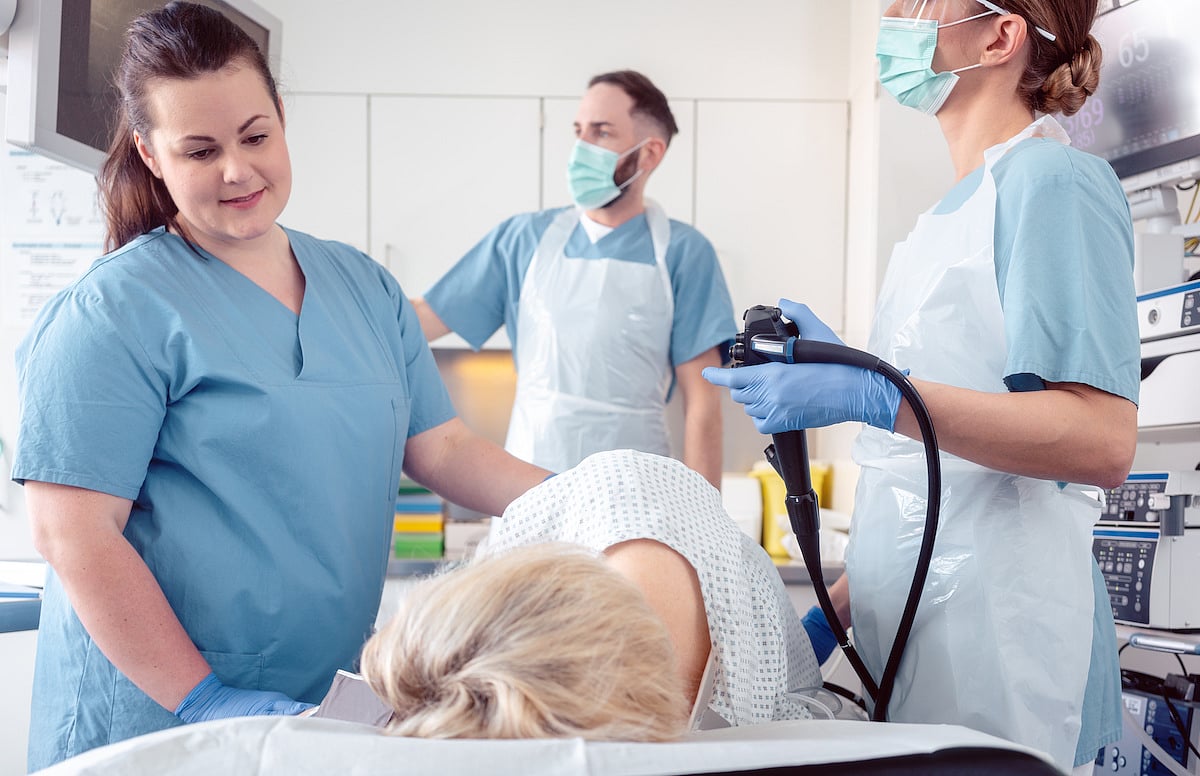Get Healthy!

- Robin Foster
- Posted August 6, 2024
U.S. Spends $43 Billion Annually on Cancer Screening
Screening for cancer saves lives, but a new report shows it comes with a hefty price tag: The United States spends at least $43 billion annually on tests that check for five major cancers.
Published Monday in the Annals of Internal Medicine, the new analysis focused on screenings for breast, cervical, colon, lung and prostate cancers.
Study lead author Dr. Michael Halpern, a medical officer in the National Cancer Institute’s health care delivery research program, told the New York Times that his team was surprised by the high cost.
And some critics of the country's current amount of screening questioned whether the price tag was justified.
“What are we actually getting of value for that amount of money?†Dr. Adewole Adamson, a dermatology researcher at the University of Texas at Austin who studies screening, asked the Times.
“If it was actually doing something I could say, ‘Yes, it is justified,’†he said. However, studies have repeatedly failed to show that people live longer if they are screened, he said, and some cancers are just deadly from the start.
“People have an outsized idea of what the benefits are,†Adamson said.
But Karen Knudsen, chief executive of the American Cancer Society, stressed the value of cancer screening is clear.
“We are talking about people’s lives,†she said. “Early detection allows a better chance of survival. Full stop. It’s the right thing to do for individuals.â€
“We screen for cancer because it works,†Knudsen added. “The cost is small compared to the cost of being diagnosed with late-stage disease.â€
Still, other experts say the finding, which was based on 2021 data, supports their contentions that screening is overused.
Colonoscopies were a big source of screening costs, accounting for 55 percent of the total.
Dr. David Lieberman, a specialist in colon cancer screening from Oregon Health & Science University, told the Times that while the cost of colonoscopies are high, the test can prevent cancer as well as detect it because doctors can slice out growths on the colon wall that can turn into cancers.
While preventive testing against cancer could be carried out more efficiently, advocates for screening maintain it still saves lives.
“Too many people undergo screening who are unlikely to benefit, but many more who could benefit have never been screened or are not screened regularly,†Knudsen said.
She added that “the value of screening is settled science.â€
But Dr. Gilbert Welch, a senior researcher in the Center for Surgery and Public Health at Brigham and Women’s Hospital who wrote an editorial that accompanied the new study, said falling cancer rates can't be chocked up solely to cancer screening.
For example, earlier research from Welch showed the death rate for colon cancer has declined for 40 years, falling by nearly 50 percent from the 1980s -- when few were screened -- to today, when about 50 percent of eligible adults are screened.
“I’m not saying there is no effect from screening, but it is so small that something else is going on,†Welch told the Times. Instead, better colon cancer treatments and healthier diets among Americans might be fueling the drop, he noted.
Dr. Daniel Morgan, who directs the Center for Innovation in Diagnosis at the University of Maryland, said he agreed with Welch that cancer screening has its limits.
“I hope his editorial stimulates a conversation about the true value of screening,†he told the Times.
More information
The National Cancer Institute has more on cancer screening.
SOURCES: Annals of Internal Medicine, Aug. 6, 2024; New York Times







